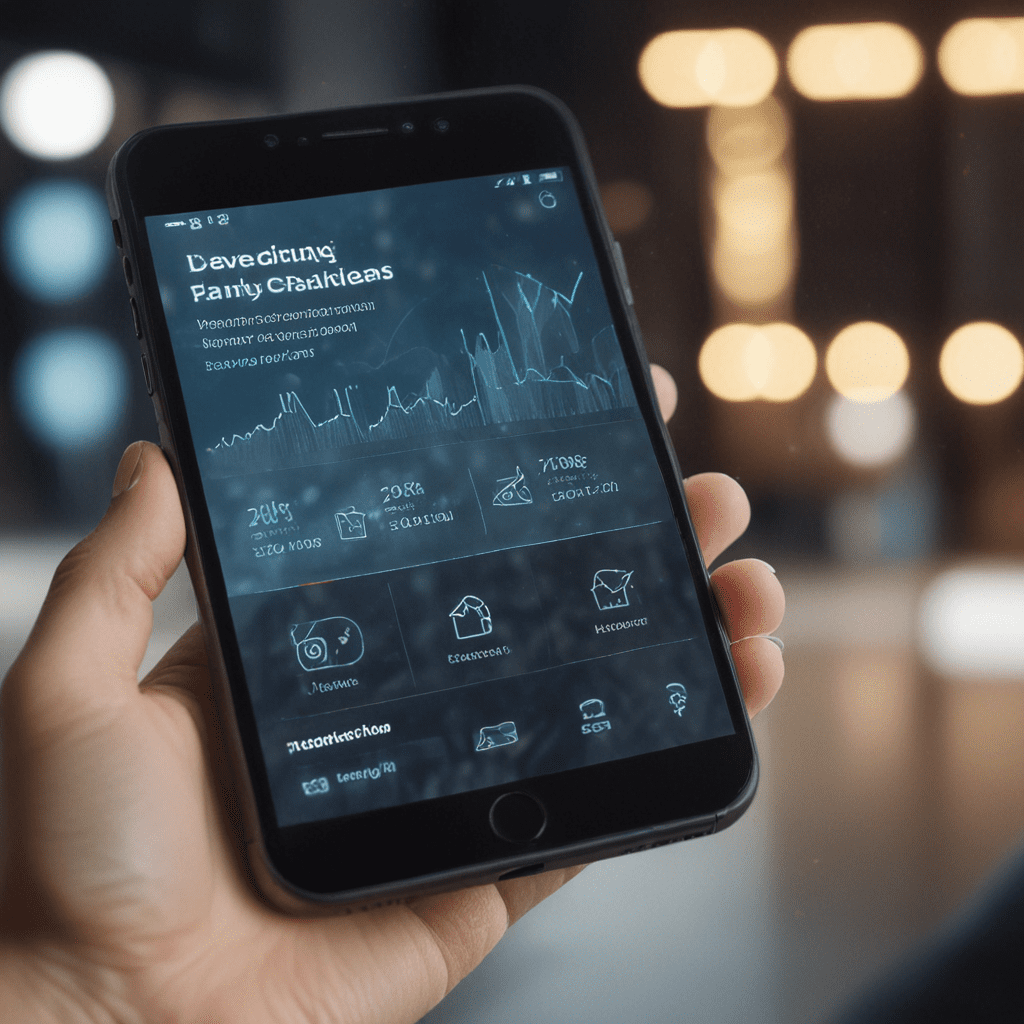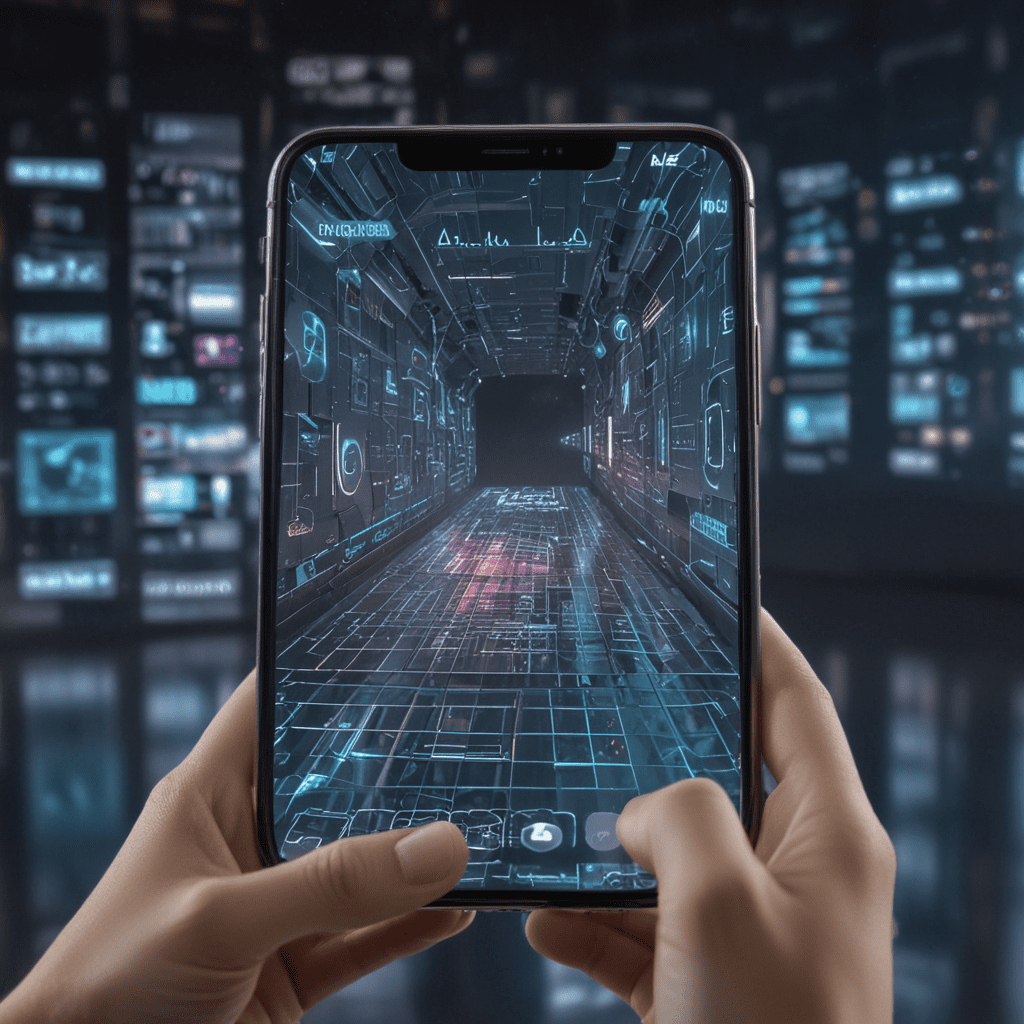Mobile-First Government
In the era of ubiquitous mobile technology, governments are recognizing the imperative to adopt a mobile-first approach to service delivery. Mobile apps empower citizens with convenient, real-time access to essential government services, from paying taxes to renewing licenses. By prioritizing mobile accessibility, governments can cater to the changing needs of citizens and bridge the digital divide.
Cloud-Native Apps for Scalability
Cloud computing offers a scalable and cost-effective platform for government mobile app development. Cloud-native apps can dynamically scale up or down based on varying usage patterns, ensuring seamless performance during peak demand and cost optimization during off-peak periods. This elasticity enables governments to cater to citizens' evolving needs without overburdening their IT infrastructure.
Data-Driven Decision Making
Mobile apps generate vast amounts of data on citizen interactions, preferences, and usage patterns. Harnessing this data through advanced analytics empowers governments to make data-driven decisions that enhance service delivery. By analyzing app usage metrics, governments can identify areas for improvement, optimize user experience, and tailor services to specific citizen segments.
Artificial Intelligence and Automation
Artificial intelligence (AI) and automation are revolutionizing government mobile app development. Chatbots and virtual assistants provide immediate and personalized assistance to citizens, reducing wait times and improving service accessibility. AI algorithms can automate repetitive tasks, freeing up government staff to focus on more complex and value-added tasks. By leveraging AI, governments can enhance citizen engagement, streamline processes, and create a more efficient and responsive service ecosystem.
User-Centric Design
The success of government mobile apps hinges on their user-centric design. By adopting a human-centered approach, governments can create apps that are intuitive, easy to use, and meet the specific needs of citizens. This involves understanding user demographics, preferences, and pain points through research and user testing. By prioritizing user experience, governments can build apps that foster citizen engagement, increase satisfaction, and drive adoption.
6. Security Imperatives
In the digital age, ensuring the security and privacy of citizen data is paramount for government mobile app development. Governments must implement robust security measures to protect sensitive information from unauthorized access, breaches, and cyberattacks. This includes encryption of data both in transit and at rest, multi-factor authentication, and adherence to industry-standard security protocols. By prioritizing data security, governments can build trust and confidence among citizens.
7. Citizen Engagement Platforms
Government mobile apps can serve as platforms for citizen engagement and participation. By integrating social media features, discussion forums, and feedback mechanisms, governments can foster two-way communication with citizens, gather feedback, and improve service delivery. These platforms enable citizens to share ideas, report issues, and connect with their government in a meaningful way, promoting transparency and accountability.
8. Data Analytics for Performance Improvement
Mobile app data provides valuable insights into citizen behavior and preferences. By leveraging advanced analytics techniques, governments can identify trends, measure the effectiveness of services, and optimize app performance. This data-driven approach enables governments to continuously improve the user experience, target services to specific citizen groups, and allocate resources more efficiently.
9. Blockchain for Transparency and Efficiency
Blockchain technology has the potential to revolutionize government mobile app development by enhancing transparency and efficiency. Blockchain-based apps can provide secure and immutable records of transactions, contracts, and other government processes. This can eliminate fraud, reduce administrative costs, and foster trust between citizens and government. By embracing blockchain, governments can streamline service delivery, improve accountability, and promote innovation.
10. Emerging Technologies for Enhanced User Experience
Government mobile app development is constantly evolving, with emerging technologies offering new opportunities to enhance user experiences. Virtual reality (VR) and augmented reality (AR) can provide immersive and interactive interfaces for citizens to engage with government services. Internet of Things (IoT) devices can enable real-time monitoring and data collection to improve service delivery. By embracing these emerging technologies, governments can create innovative and engaging mobile apps that make it easier for citizens to access essential services.
FAQs
Q: What are the key trends in mobile app development for government services?
A: Mobile-first design, cloud-native apps, data-driven decision-making, AI and automation, user-centric design, security imperatives, citizen engagement platforms, data analytics, blockchain, and emerging technologies.
Q: Why is a mobile-first approach important for government services?
A: It empowers citizens with convenient, real-time access to services, bridging the digital divide and meeting their evolving needs.
Q: How can governments leverage data analytics to improve mobile app performance?
A: By analyzing app usage data, governments can identify trends, measure effectiveness, and optimize the user experience, tailoring services to specific citizen segments.
Q: What are the security considerations for government mobile app development?
A: Robust security measures, such as data encryption, multi-factor authentication, and adherence to industry-standard protocols, are crucial to protect sensitive citizen data from unauthorized access and breaches.
Q: How can governments promote citizen engagement through mobile apps?
A: By integrating social media features, discussion forums, and feedback mechanisms, mobile apps provide platforms for two-way communication, fostering trust and accountability between citizens and their government.


